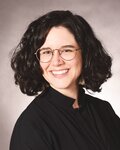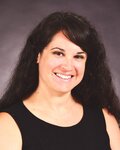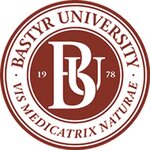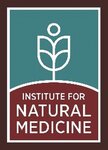




OKANOGAN COUNTY - Interview with naturopathic resident Logan Rost, ND, Sarah Acosta Smith, ND (ND residency director) and INM’s editor-at-large Griffin McMath, ND
In this interview, The Institute for Natural Medicine’s editor-at-large, Griffin McMath, ND interviews Dr. Logan Rost, a second-year resident naturopathic doctor and public-health professional at Family Health Centers community health center in Okanogan County, as well as Sarah Acosta Smith, ND, ND residency director. In this interview, both doctors talk about the importance of inclusion of naturopathic doctors as primary care providers to decrease the primary care provider shortage while being part of the primary care team alongside other provider colleagues. This naturopathic medicine residency is led by Sarah Acosta Smith, ND with support from Institute for Natural Medicine (INM) and Bastyr University.
To further explain the INM Primary Care Task Force, Michelle Simon, ND and CEO of INM states that “The INM Primary Care Taskforce is an excellent example of a collaborative effort in Washington and Oregon to expand the primary care workforce to include naturopathic doctors. As specialists in whole person care, NDs unique training equips them to effectively address patients with chronic diseases that often benefit from diet and lifestyle changes. NDs are also specialists in preventive care. The addition of NDs to the primary care workforce can help deliver improved outcomes for underserved populations.”
Jesus Hernandez, CEO of Family Health Centers states that “Naturopathic medicine resonates with the healthcare values of many communities especially Latinx communities from rural Mexico and Central America where lack of professional clinical care has compelled people to learn self care practices using natural elements in their surroundings from clay to roots and plants that have medicinal value learned over generations. Incorporating naturopathic medicine into conventional medicine gives us more tools to care for people, optimizing the patients’ ownership of their health. FHC’s growing relationship with Bastyr, a school of naturopathic medicine, adds another exciting dimension to our healthcare with great benefit to our patients.”
To further illustrate Bastyr’s commitment to their alumni, Devin Byrd, President of Bastyr University states “Bastyr University is excited to announce an additional ND residency that is CNME approved. Bastyr University feels strongly about residency opportunities for their alumni to strengthen clinical skills and to support further job opportunities. Bastyr University joins with Family Health Centers of Okanogan in the effort to provide amazing care for all patients."
Now for the interview:
The following is an edited and excerpted version of the audio interview.
Dr Griffin McMath: What are the top three items you'd like people in the local community to take away from the interview from your viewpoint as a residency director and/or ND?
Dr Sarah Acosta Smith: The ND Residency at Family Health Centers is an important step in improving the health of the local community as it helps to improve access to healthcare in Okanogan County and offers patients diverse care options. We work together with other health professionals at FHC to strengthen and optimize integrative care and whole person health. The ND residency at FHC is a win for the ND community as it helps to strengthen naturopathic primary care education and skills - especially in rural, underserved areas, enhances collaboration and exposure on a multidisciplinary team, improves access to naturopathic medicine, and adds post-graduate education and work opportunities for ND graduates.
Dr. Griffin McMath: Tell us a little about yourself, Dr Rost, and your work in family medicine in Washington.
Dr. Logan Rost: I work as a naturopathic resident at Family Health Centers community health center in Okanogan County, Washington. I rotate through multiple different clinics and the towns in the area. Okanogan county is in North Central Washington in Washington State. I am originally from Tennessee, but naturopathic medical school brought me out to the northwest.
Dr. GM: Can you tell us a little bit more about your path to naturopathic medicine?
Dr. LR: Absolutely. I always knew that I wanted to be a doctor and that has always been typically in primary care. I've wanted to do primary care since I was young. When it came time at the end of my undergraduate degree, I considered taking the MCAT to apply to medical school. Something in my gut told me to take a moment and consider my options. And at that point, I only knew about medical school for a medical doctor (MD) and a doctor of osteopathy (DO).
Those were the only two considerations. Instead of immediately going to medical school after undergrad, I decided to take time and get my Master's in medical anthropology, which was something that I was also passionate about and felt like it would really be able to impact on how I was able to care for patients. I moved to Denver, Colorado for that degree. While I was in that program, a good friend said, it sounds like you want to do naturopathic medicine. I was like, ‘I don't know what that is. Can you tell me more?’ She shared her experience with naturopathic medicine and then told me to look at Bastyr University in Seattle, Washington, which is the naturopathic medical school I attended. As soon as I started researching Bastyr University and naturopathic medicine, I realized immediately that was what I wanted to do. Through that journey, I found myself studying naturopathic medicine.
Dr. GM: Oh, that's great. Also, I love that you studied medical anthropology.
Dr. LR: I tried to be involved with things specifically trying to bring more awareness to underserved and marginalized populations. I was really involved with Trans Health Awareness Week that developed into Trans Health Awareness Month at Bastyr University. In my latter years, after starting the master's in public health program, I was trying to be involved in the creation of a community health track. That was in coordination with the INM Primary Care Task Force. I wanted naturopathic students who wanted experience in community health to be able to choose their track or have a second track for them to be able to prepare themselves as best they could to go into those environments.
Dr. GM: You get to the end of naturopathic medical school, you finish your Master’s in Public Health (MPH), and you specifically have this interest in providing primary care, especially within these specific communities. What was it like to pick the path for your next step in your career after graduating?
Dr. LR: I always knew that I wanted to do a residency. It was important that I have a rigorous learning environment by being challenged in seeing lots of patients. Also, I wanted an ongoing mentorship from someone to help me with a particularly challenging case and taking any clinical pearls from their years of experience being in the field and working in primary care. Being part of a team, a clinical team of people working towards our patient’s best interest, is really important to me. It is critical and integral to how I want to practice primary care. A residency was sort of a natural way for me to be able to do that.
Dr. GM: You work in a Federally Qualified Health Center, an FQHC. What does that mean in terms of how people access care in their community?
Dr. LR: A Federally Qualified Health Center or FQHC, is a community health center or community clinic that has met certain federal standards that have been set out so that they can receive federal funding in order to provide care for populations or communities that don't have good access to health care. There are multiple clinics that Family Health Centers owns and operates across county. I'm at the south clinics, and they're in the southern border of the county in the towns of Brewster and Bridgeport. There are two clinics in Brewster and one clinic in Bridgeport. Right now, I'm pretty much joined at the hip with Dr. Sarah Acosta Smith, who is one of the naturopathic primary care doctors who's been working for Family Health Centers for about five years now and who has been integral in both the INM primary care Task Force as well as the creation of this residency at Family Health Centers.
Currently, there are three of us who are naturopathic doctors who are employed by Family Health Centers, and we rotate through different clinics to be able to give naturopathic primary care services to as many people and communities in the county. In terms of residency, it's all part of the learning process. It took a bit of getting used to being onboarded to multiple clinics at the same time versus just one. This way I get to work with many different care teams, which has been a great experience. I get to see a lot of different patients. Depending on where I am in the county, I see different demographics of patients, and I see different things that the communities are struggling with. My public health brain is very excited to be able to see trends in the county, depending on what community I'm working with, and see what's coming into the clinic. I use that knowledge to try to make community change on a larger level.
Dr. GM: On that note, with your “public health brain” what is it like being in a Community Health Center during the pandemic?
Dr. LR: It’s been an interesting experiment being both a newly graduated primary care doctor and a public health student in the midst of a pandemic. But I feel like it really has appealed to my public health brain in many ways. Like my public health degree, a focus on social justice and community health education and being able to work in a community health center with people who are very invested in caring for their community, and doing as much as they can during this pandemic, has been really wonderful. It has allowed me to get a lot of practice with community health, education and public health sort of right out the door, which I've been very grateful for.
Dr. GM: Lastly, let’s shift a little bit to what it's like for a patient to work with a naturopathic medical resident in a clinic like yours?
Dr. LR: One thing that can be different being in an outpatient clinic setting is that I, as a naturopathic resident, can see patients without an attending physician present. It can be very much like a normal primary care visit that patients are accustomed to. It’s a straightforward primary care visit because I'm a primary care provider. There are also instances where people are coming to me or the other naturopathic primary care providers here for more sort of specialized naturopathic services. And so, it really depends on what the patient is coming in for and how we're seeing them.
Dr. GM: Any last things that you like to tell the public about what it's like to be a naturopathic medical resident or any other last thoughts?
Dr. LR: I'm just really excited! I'm at a place in my budding career where I'm very excited to be a naturopathic doctor that also has a degree in public health and a background in medical anthropology. I feel like those things have been the perfect trifecta to get me to where I can truly serve populations that don't have good access to quality medical care. I feel very excited to be able to bring naturopathic medicine to those communities and be working in a more rural area.
Comments
No comments on this item Please log in to comment by clicking here